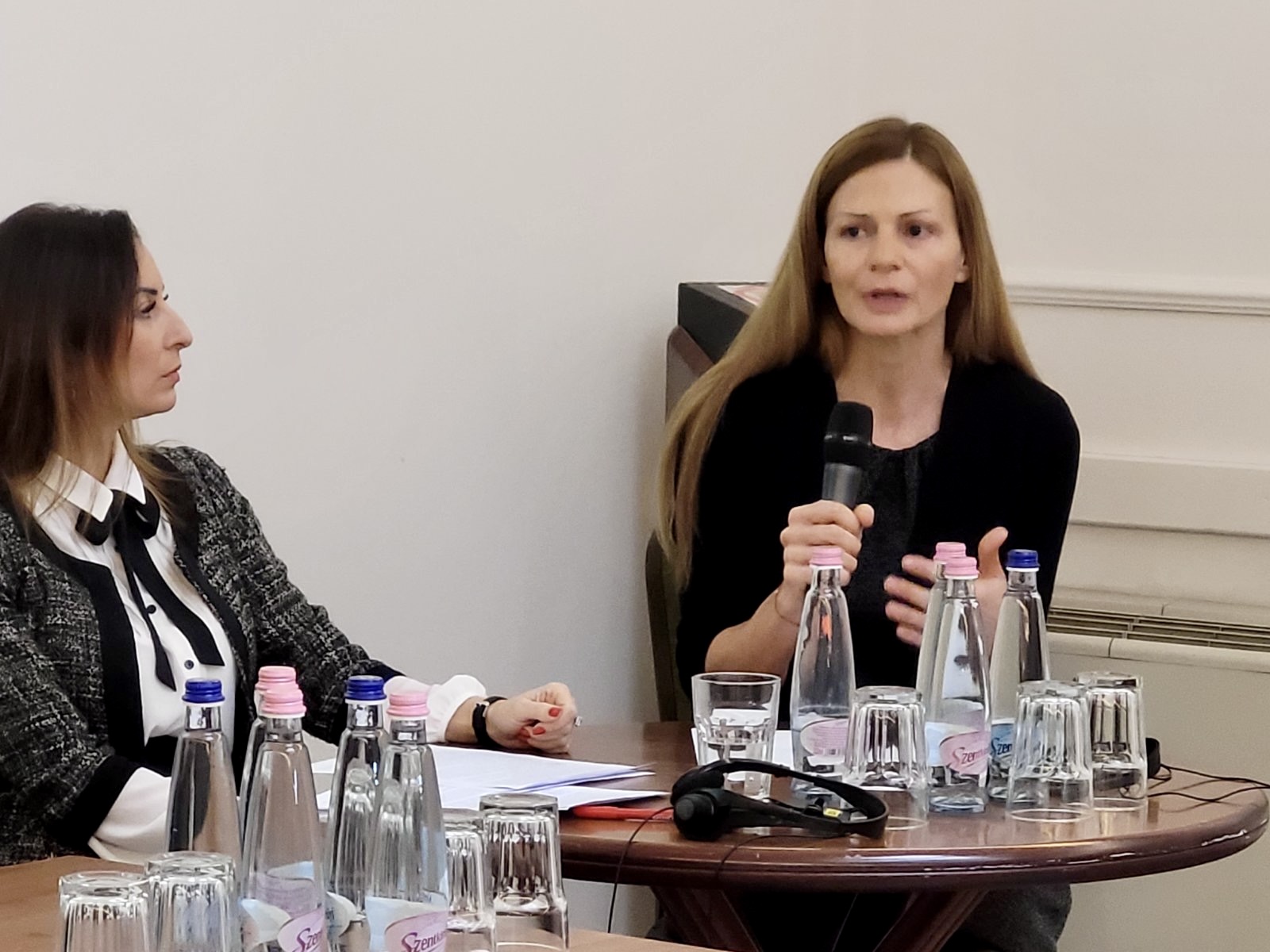An international conference on the opportunities for active participation of people over the age of 50 in the labor market is held in Budapest
"The share of workers over 55 is growing every year. The demographic replacement rate in Bulgaria is 69 in 2021, which means that for every 100 people who retire, there are 69 people who enter working age. As a result of these processes, it turns out that the ability of employers to retain older workers is a key measure to temporarily solve the problem of labor shortages”. This was said by Svetlana Doncheva, Head of the Project Management Centre at the Bulgarian Industrial Association, during the final conference of the eDigiStars project in Budapest.
The eDigiStars project is implemented by 19 partners from 8 Danube countries - Austria, Bosnia and Herzegovina, Bulgaria, Czech Republic, Hungary, Romania, Slovenia, and Ukraine. The main goal is to develop sustainable ecosystems that successfully transform older workers into self-employed entrepreneurs who offer digital services.
Svetlana Doncheva was invited by the organizers to the discussion panel "A new path for the elderly! | Or employees over 50, self-employed or looking for work and their opportunities on the labor market", to present part of the results of the project "Active ageing: the way to success", which BIA carried out in the period 2019 – 2021.
She told the conference delegates that generational issues are even more relevant and significant in the current situation on the labor market. Project work has reported four, even five generations working together for the first time, and this, in turn, is proving to be a huge challenge for employers who are struggling to successfully manage generational differences in the workplace. The results of a qualitative study carried out by BIA among 809 respondents, representatives of the four main generations in the labor market, have confirmed the hypothesis that there are significant differences between them in terms of needs, values, motivation, expectations, attitudes, behavioral patterns and attitudes towards labor. At the same time, the analyzes confirm another hypothesis of the researchers, namely that employers lack experience in implementing successful management practices related to the intergenerational approach and the management of generational differences. At the heart of this approach is the understanding that the specifics of different generations must be studied, identified and used to create a work environment that highlights the strengths of each generation, promotes mutual understanding and solidarity between different generations in the interest of the common business aims.
The project " Active ageing: the way to success" has also very accurately taken into account the needs and characteristics of people over 50 years of age, who are the main group of the eDigiStars project. HR experts at BIA call this Generation T (Traditionalists). In Bulgaria, this generation grew up during the period of consolidation of the socialist regime and the state planned economy. These are people who value the work ethic of the previous time, are not inclined to change their jobs often, they are rather workaholics, supporters of a stricter hierarchy. Education is a high value for traditionalists and it is not true that the elderly do not want to be educated and learn.
The experts who worked on the project recommend that employers emphasize on-the-job training, exchange of experience and cooperation with colleagues, and report that people over 50 years of age have a harder time understanding the dynamics of the workplace. Changing processes and procedures confuses and stresses them. "More time is needed to adapt and assimilate the new conditions. Therefore, employers must be patient, tolerant and give them enough time to adapt to the new conditions. Naturally, as we age, suitable working conditions and the absence of excessive work pressure become more and more important. In this sense, employers should think about more flexible forms of working hours, introduction of more ergonomic working conditions for people at an older age", added Svetlana Doncheva and emphasized that the activities of the eDigiStars project were a natural upgrade of the results of the "Active aging" project. The work of the eDigiStars project team, based on the in-depth previous analyses, has helped to create the three tools that play a key role in the learning process of people over 50 years of age.
- The PowerUp module motivates older people to acquire digital competences in order to realize them as employed/self-employed persons offering ICT services;
- The Campus module guides training course providers how to effectively adapt their courses to the needs of the project's target group – people over 50;
- The Label module is aimed at the various participants in the labor market - labor offices, employers' associations, guaranteeing the quality of the workforce by certifying the acquired knowledge and skills and creating trust in employers.
The tools developed under the eDigiStars project can be found HERE
See more:
Handbook for managing generational differences
PHOTOS from the conference









